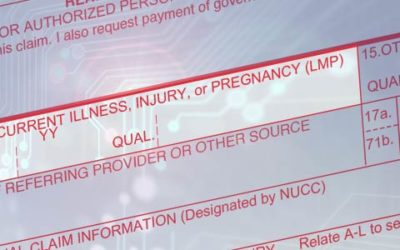
Marty Kotlar, DC, CPCO, CBCS
Question: Dr Kotlar, “I’m not sure when a re-examination should be performed. I’ve heard that re-exams should be done every 30 days. On some patients, I do not do re-exams at all. Some health plans deny my re-exams because they only pay for one exam per year and Medicare doesn’t pay for re-exams. I’m confused, can you help?”
Answer: To begin with, you must perform re-exams whether you get paid or not. Your state scope of practice requires periodic re-exams as part of standard of care. Some state practice acts require re-evaluation at defined intervals.
A re-examination is the process of performing selected tests and measures after the initial examination to evaluate progress and to modify or redirect interventions. Indications for a re-examination are new clinical findings or failure to respond to interventions. You should use the information gathered during a re-examination to determine if the current course of care is appropriate or if modifications are necessary. Therefore, a re-evaluation is the process of retaining or modifying the plan of care.
The difference between an initial examination and re-examination is the initial exam establishes the original plan of care and re-exams are used to modify the plan of care, as indicated. An “assessment” is different than an evaluation or re-evaluation. An assessment is the measurement or quantification of a variable or the placement of a value on something. An assessment may be a component of examinations and re-examinations, but should not be confused with these processes. An assessment may occur during each visit and is part of the overall service provided during a visit. Assessments are not reported separate from an evaluation or re-evaluation service unless the assessment is a separately identified service.
Examinations are required prior to the initial treatment for all patients. This process helps you determine the most appropriate procedures to achieve treatment goals and desired outcomes. New patient exam codes are 99201 – 99205 and should be billed when the patient is evaluated for a new condition that results in a new plan of care. Re-examinations are appropriate to help refocus care and determine if the current plan of care is appropriate or needs modification and billed with codes 99211 – 99215.
Re-examinations should be performed in the following situations:
- When the patient’s condition or capacity to function substantively improves such that an update to the diagnosis and plan of care is necessary. Therefore, revise treatment plan.
- When the patient’s condition or capacity to function substantively worsens (e.g., exacerbation) such that update to the diagnosis and plan of care is necessary. Therefore, revise the treatment plan and explain in detail why you think the patient is not improving.
- When the patient’s condition or capacity to function remains substantially unchanged for too long a period of time. This re-evaluation should focus on why the condition is not improving, what will be done to obtain improvement, or if not possible, the patient should be referred to a healthcare provider for another opinion, dismissed from treatment or transferred to a preventive/maintenance plan of care at the patient’s expense.
- The emergence of a new condition during treatment. Again, this requires a new plan of care that addresses both the current and new condition.
- And sometimes at discharge (document the goals achieved, goals not achieved, instructions given, etc.).
The re-examination documentation should include the patient’s current status, updated examination findings, a discussion of progress or lack of, the updated plan of care, treatment goals, updated diagnosis, future services rendered with clinical rationale and discharge to wellness planning.
Marty Kotlar, DC, CPCO, CBCS is the President of Target Coding. Dr. Kotlar is Certified in CPT Coding, Certified in Healthcare Compliance, and has been helping chiropractors nationwide with billing, compliance, coding and documentation for over 10 years. Target Coding can be reached at 1-800-270-7044, website – www.TargetCoding.com, email – info@targetcoding.com.









 ▶︎
▶︎  Why is the Discount Challenge prize amount $15,024? Because that is the average “per-occurrence” fine for Medicare inducements. That’s not $15,024 per patient, that’s not per provider, that’s PER VISIT. Stinks, doesn’t it? To us, the prize amount is worth the investment if we can help our profession better understand proper discounting.
Why is the Discount Challenge prize amount $15,024? Because that is the average “per-occurrence” fine for Medicare inducements. That’s not $15,024 per patient, that’s not per provider, that’s PER VISIT. Stinks, doesn’t it? To us, the prize amount is worth the investment if we can help our profession better understand proper discounting.